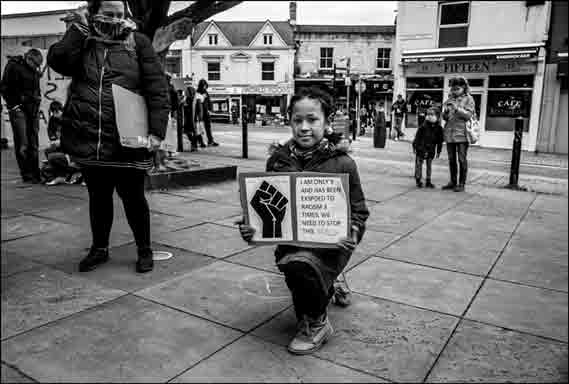Equality does not exist. It has never existed. And yet, losing it creates a sense of boiling anger that keeps me awake at night. When it gets too unbearable, I pick up a Christopher Hitchens book to feel a sense of vindication; there are people angrier than me, and things could be worse than they are. In the current context, they will probably get worse, but until then my anger is so seductive that I justify it to myself as well as to people around me.

Barry Richards looks at anger against the ‘establishment’ in the context of the Brexit referendum, giving it a compelling psychosocial dimension: anger as ‘narcissistic rage against otherness of the authority’ (2019). The social ‘rage’ felt in 2016 materialised in a rejection of the EU’s perceived authority, in an attempt to reclaim promised freedoms which, up to that point, people did not even think they had missed. The populist propaganda played an important role in mobilising that sense of anger, but it must have started somewhere else, at a far deeper level. Richards talks about a range of socio-economic conditions which nurture the collective anger; from the growing economic inequality, to the loss of institutional sovereignty and the social tensions fitting into the equation ‘them and us’.
Although often (but not always) irrational and misunderstood, anger can become a form of projection of our own sense of humiliation and loss of dignity, a difficulty in accepting authority. In social terms, the authority can take different forms and shapes and it makes its presence felt in social organisations as well as in leadership structures. Anger is a weakness in democracy as it makes it receptive to manipulations from charismatic leaders (individuals or institutions) who/which place themselves outside the corrupt system that the public is ‘upset about.’

The issue with projected anger in complex democracies needs further attention. With multimedia types of interaction, anger is often, and easily, used as a form of social communication. At the same time, it is an inefficient, if not weak, strategy when it meets well-rehearsed discourses from leadership figures who shout loudly, clearly and repeatedly that they would ‘get things done.’ Going further, the cynical aspect of this theory is that the establishment itself knows this too. The establishment knows that anger:
a). can be projected (therefore it has little impact on the practical aspects of governance) and
b). can be manipulated (therefore people can be given ample new reasons to direct their anger at).
More than that, the establishment understands that if a reasonable proportion of the population has enough material resources to participate in the democratic exercise, the anger simmers for a while without reaching boiling point. And even if it reaches that point, the finger points at the angry, and relatively few, elements within the society, accused of flouting the public duty or the civic responsibility.
In this context, my anger confirms the fact that I am not a good citizen but a victim of my own inability to control my feelings. My anger is a symptom of my humiliation and a result of my lack of resources. My anger makes me worthy of pity.
© Maria Stadnicka, June 2020
Richards, B. (2019) ‘Beyond the angers of populism: a psychosocial inquiry.’ Journal of Psychosocial Studies, 12 (1-2): 171-183.
